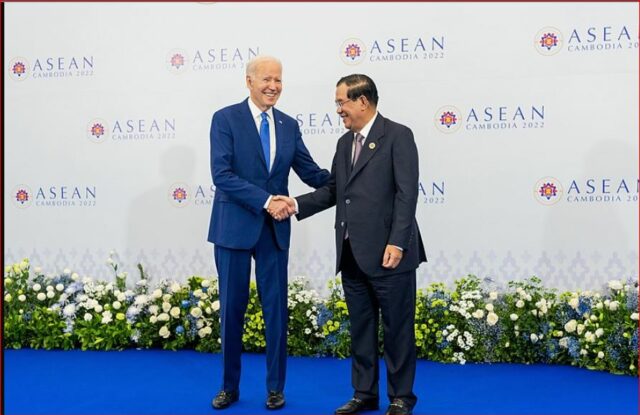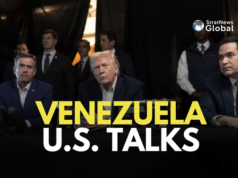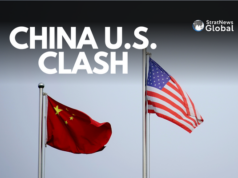In a move that cements his continued influence over Cambodian politics, former Prime Minister Hun Sen was unanimously elected as the new President of the Senate on Wednesday. This development comes less than a year after the 70-year-old strongman handed over executive power to his eldest son, Hun Manet, following nearly four decades of iron-fisted rule.
Hun Sen’s rise to the Senate presidency role took place when senators voted to approve his appointment. This position allows him to act as the acting head of state whenever King Norodom Sihamoni, who holds the highest ceremonial role in Cambodia, is traveling abroad – something the monarch frequently does for health reasons.
The Senate election in February saw Hun Sen’s long-ruling Cambodian People’s Party (CPP) secure a commanding 55 out of the 62 available seats, with the remaining seats going to the opposition Khmer Will Party. This outcome reflects the CPP’s firm grip on power in the Southeast Asian nation.
Expressing gratitude for the “honour” of being named Senate President, Hun Sen acknowledged it was his first time occupying such a prominent position and pledged to leverage this new ceremonial role to further Cambodia’s international diplomacy efforts.
Analysts view Hun Sen’s Senate presidency as a strategic maneuver allowing him to maintain significant influence, despite ostensibly relinquishing the premiership last year after nearly 40 years at the helm.
During his lengthy authoritarian rule that began in 1985, Hun Sen helped rebuild Cambodia following years of civil war and the Khmer Rouge genocide that devastated the country in the 1970s. However, his tenure was also marked by environmental destruction, entrenched corruption, and the systematic elimination of nearly all viable political opposition.
Ou Virak, a prominent Cambodian political analyst, underscored the symbolic significance of the Senate presidency, describing it as the “highest political symbol of the nation” despite lacking substantial legislative powers. With the king frequently abroad, often for medical treatment, Hun Sen’s new role takes on heightened importance, enabling him to sign laws into effect during the monarch’s absence.
Hun Sen’s appointment as Senate President represents the latest in a series of moves solidifying the CPP’s dominance across all branches of government. The current administration is stacked with Hun Sen’s relatives, including his youngest son Hun Many serving as a deputy prime minister, as well as the children of his longstanding allies occupying key positions.
The concentration of power within Hun Sen’s family and the ruling CPP has raised concerns about the future of democracy and pluralism in Cambodia. While the nation has made strides in rebuilding after the devastation of the Khmer Rouge era, critics argue that Hun Sen’s decades-long grip on power has come at the cost of human rights, press freedoms, and the ability of the opposition to operate without interference.
Also See:
In a career spanning three decades and counting, Ramananda (Ram to his friends) has been the foreign editor of The Telegraph, Outlook Magazine and the New Indian Express. He helped set up rediff.com’s editorial operations in San Jose and New York, helmed sify.com, and was the founder editor of India.com.
His work has featured in national and international publications like the Al Jazeera Centre for Studies, Global Times and Ashahi Shimbun. But his one constant over all these years, he says, has been the attempt to understand rising India’s place in the world.
He can rustle up a mean salad, his oil-less pepper chicken is to die for, and all it takes is some beer and rhythm and blues to rock his soul.
Talk to him about foreign and strategic affairs, media, South Asia, China, and of course India.





